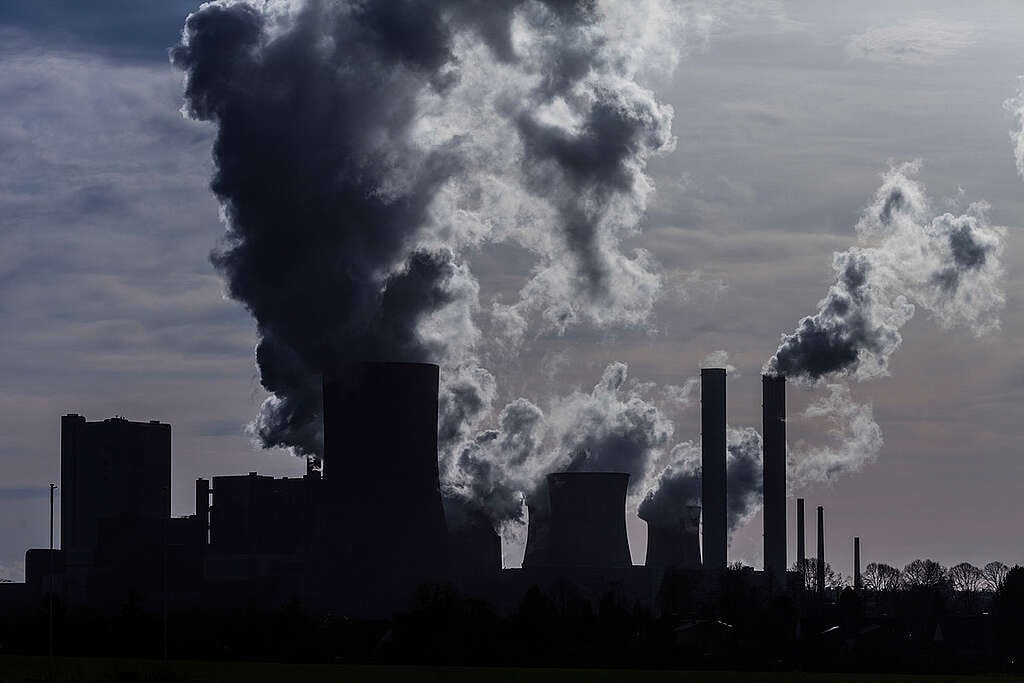“Have you ever been to the Great Barrier Reef??”
As an Australian working within the global Greenpeace network, it is a question I have been asked numerous times. Our Great Barrier Reef is justly famous across the planet as one of the most admired and remarkable places on earth.
Around two million people come from around Australia and the world to see our Reef every year, and there’s no doubt that a visit is on the ‘bucket list’ of countless more who imagine themselves gliding amidst the wonder of colour and life.
I visited the reef again earlier this year to film a documentary with CNN, and found myself rapidly entering a state of dream-like exhilaration sparked by every kaleidoscopic glimpse of fish and coral. One big branching array of coral particularly caught my attention, the fans a delicate cornflower blue, with an intensity that faded towards the edges as if by a painter’s brush.
My dreaming, though, was brought up short. My companion in the water was marine biologist and James Cook University professor Jodie Rummer and her assessment was blunt: “The damage here is worse than I feared it would be.”
It turned out that the fading blue that I had unthinkingly admired as the beauty of healthy coral was actually evidence of bleaching—the devastating phenomenon caused by warming oceans that can eventually kill corals if bleaching occurs too frequently or intensely.
There have now been five mass bleaching events on the Great Barrier Reef in the last decade: 2016, 2017, 2020, 2022, and 2024. Scientists are growing increasingly distraught about the fate of the reef, in the face of frequent marine heatwaves, which are driven by record global temperatures.
As leading Australian reef scientist Professor Ove Hoegh-Guldberg put it in a recent article: “The Great Barrier Reef is the warmest it has been for at least 400 years. Unless humanity takes dramatic action to halt climate change, we will lose the beautiful, complex reefs that have existed on Earth for millennia.”
Other factors are eroding the health of the Great Barrier Reef, ranging from unsustainable fishing to pollution, sediment runoff, and crown-of-thorns starfish outbreaks.
But scientific consensus is clear that climate change, largely driven by the burning of coal, oil, and gas, is an existential threat to the reef. If we don’t address climate change, all other efforts will effectively be no more than tinkering at the edges of the problem.
While some parts of the reef have been spared from the worst of the bleaching so far, the reality is that scientists like Professor Hoegh-Guldberg predict that “in the next 18 to 24 months we’ll see bleaching on the scale we haven’t seen before”.
And if nothing is done to stop the root cause of rising ocean temperatures—climate change, driven by the burning of coal, oil, and gas—then the impacts of warming will eventually outstrip the ability of reefs to adapt and survive.
The future of the Great Barrier Reef depends on reducing greenhouse gas emissions at emergency speed and scale. To give our reef the best chance of life, there should be no new coal, oil, or gas extraction projects in Australia or anywhere else in the world.
Stopping climate pollution is the only way to give our reef a chance at survival; and though the road to recovery for the reef will no doubt be complex and difficult, it is not too late for us to do everything in our power to save the reef.
Fossil fuel corporations like Woodside, Whitehaven and Santos, who unashamedly continue to attempt to open new coal, oil and gas reserves despite full awareness of the catastrophic consequences for people and nature, must be stopped. Our elected leaders must stop approving new fossil fuel projects even as they accelerate the growth of renewables.
The actions we take now—in the next days and months—will determine the fate of the Great Barrier Reef, as well as the future conditions of all life on Earth.
Our joy at what still exists, and faith in the resurgence that could yet be, must co-exist with our grief and fury and that which has been bleached from existence.
Rejoicing in the life that we see is at the heart of our hope. Witnessing what we are losing, and remembering that which is already gone, is at the core of our activism.

Sign the petition to demand the Australian Government stop new coal, oil and gas projects now.
Sign petition
